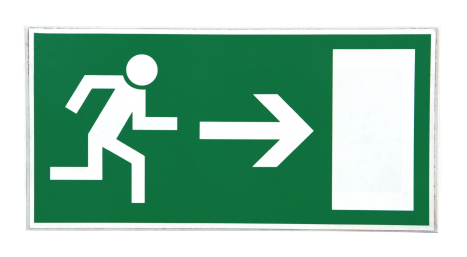Manager’s Next Steps After an Employee Resigns
Shawnee Love •
June 25, 2015
As a follow up blog on resignations, let’s look at the activities you need to do once your employee has handed you his resignation letter (or email):
Work Transition: First and foremost, it is important to meet with your employee to discuss what he has on his plate. You will want to know what he has done, what is left to do, who else is involved, as well as any expected milestones and deliverables on each aspect of his work. Once you have that information you are in a better position to decide how to transition the work (come back next week for more information on transitioning the rest of the organization when an employee resigns).
Property Return: It’s probably most important to get a handle on any intellectual property or confidential information (e.g., information about employees, customers, and/or business operations) the employee may have in his possession and ask for the property back prior to his last day of work. You should also review the various tools, resources, supplies, and equipment you have entrusted to your employee and be clear about which of those you expect back as well. Don’t forget about keys, passwords to apps, accounts, and services the company needs, business cards, etc.
Monies Owed: Check with payroll and accounting to find out if the employee owes anything to the company. If:
- You paid for an education program which he promised to reimburse,
- He has taken too much vacation which he agreed to pay back, or
- He took an advance,
you will want to discuss how he wants to pay back the company and how that will affect his final pay. Then notify payroll so his final pay is handled as agreed and it is ready in a timely fashion. (Don’t forget about the ROE!)
Performance Evaluation: It is good practice to compile your thoughts on the employee’s performance and make notes of them for the employee file. Even better if you have a conversation with your employee regarding his recent performance. If you take this step, be clear that if asked to provide a reference this performance information is what you will be basing your reference on. Thus, there will be no surprises for the exited employee (and if the feedback isn’t stellar, you may not be put on the reference list anyway). Warning: Sometimes this conversation can transition into an exit interview. Exit interviews are a good practice (better if you do a stay interview before people feel they need to resign though). If you want to do exit interviews, we highly recommend having someone other than the boss do it. With all the advice about not burning bridges out there, the boss will usually not get complete and honest feedback. Use your in house HR or a neutral 3rd party.
Reminders: Many employees who signed offer letters will have clauses in their offer letters which are binding beyond the employment relationship. For example, if your employee is bound to maintain confidentiality on your company after employment ends, remind him of that. Also remind him of options to maintain group life insurance if your group benefits has a rollover option. It is good practice to put these reminders in writing.
Security Check: When the employee is nearly done working for you, ensure you are prepared to forward his email, cancel remote access, and delete access codes. Even in amicable exits, employee usually don’t look back, but it is better safe than sorry.
That’s our to do list following an employee resignation. Do you have any to add?





